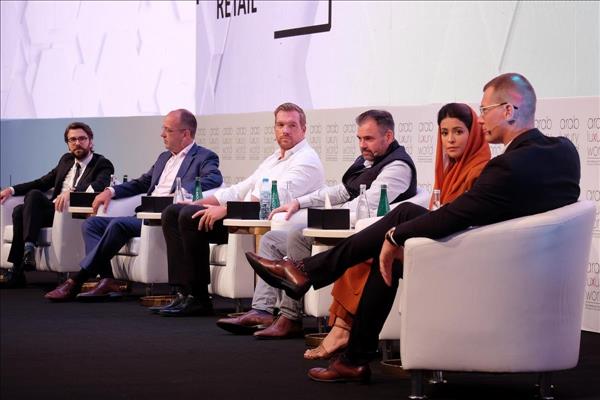
UAE- Technology to drive growth in luxury retail
Charles Haddad, general manager at L'Oreal Luxe, Middle East, noted that brick and mortar stores still have a large role to play, especially in the UAE and GCC region. Speaking during a panel session at the event, he noted that physical stores will have a much more important role to play in forming connections with customers. Proper investments in technology such as virtual reality (VR) can help brands become more effective in reaching out to shoppers.
"Technology helps us to be more consumer-centric in our approach and it also helps us to know what customers are looking for," he said. "Technology also allows for innovation and greater personalisation, which ends up helping us to be relevant to our shoppers."
As an example, he pointed to the use of interactive mirrors that allow shoppers to view what the effect of a certain makeup product will be like on their skin. Not only does this avoid the hassle of women having to remove their makeup inside a store, but it also saves the time that would be spent trying on different products.
Oliver White, head of e-commerce at Sephora Middle East, added that customers today are looking for authenticity. "They are educated to the point where they specifically look for brands that offer such products and an experience to match them," he said.
Citing challenges that still remain in the retail sphere, he pointed to a lack of communication among different departments within the organisation. "What many organisations are still doing is having different departments work in silos. Ensuring that these different structures are working together helps to bring a more cohesive and effective strategy."
Regis Dupertuis, CEO of Le Monde des 5 Fleurs, and retail excellence strategist at the Luxury Hive, added that another challenge commonly arises when it comes to hiring and training personnel for jobs in the retail industry.
"A big mistake is when brands cut their investment in their people during a downturn period," he said.
This investment is usually in the form of training and career development. Successful brands actually double their investment during such periods because they are aware that fewer shoppers will be visiting their stores.
"The big challenge for the future of retail will involve investing in people. Training, coaching and offering incentives will be critical to enhancing the customer experience. I tell the staff to focus on surprising their client every single day, which is very difficult to do but builds loyalty," Dupertuis said.
Similarly, Salama Khalfan, founder and creative director at Salama Khalfan, advised brands to hire people that are good at emotionally connecting with people. "This is why investing in your salespeople is important. People that are passionate about a product and a brand make the best salespeople. I look for people with emotional intelligence when hiring."
E-commerce is enjoying a steady growth across the Middle East's retail scene, driven mainly by younger shoppers such as millennials, noted Cyrille Fabre, partner at Bain & Company Middle East.
Online channels, he noted, are going to permeate every single purchase in the coming years and will represent over 25 per cent of the market value by 2025. In addition, he said that 100 per cent of all luxury purchases will be influenced by an online transaction.
According to insights by Bain & Company, e-commerce today is a $2.2 trillion market, and it is expanding at an annual growth rate of 24 per cent, four times faster than the global retail sector as a whole. The contribution of e-commerce has risen from seven per cent in 2012 to 39 per cent in 2017, and is expected to surpass 50 per cent by 2020.
Millennials and the Generation Z already account for about 32 per cent of the consumer market, and, by 2025, will account for more than half of the market, Fabre noted.
In addition, he also spoke about the growing influence of Chinese shoppers. Chinese consumers are expected to grow from just over a third of the personal luxury goods market to around 46 per cent by 2025.
-
RohmaSadaqat
I am a reporter and sub-editor on the Business desk at Khaleej Times. I mainly cover and write articles on the UAE's retail, hospitality, travel, and tourism sectors.Originally from Lahore, I have been living in the UAE for more than 20 years. I graduated with a BA in Mass Communication, with a concentration in Journalism, and a double minor in History and International Studies from the American University of Sharjah.If you see me out and about on assignment in Dubai, feel free to stop me, say hello, and we can chat about the latest kitten videos on YouTube.

Legal Disclaimer:
MENAFN provides the
information “as is” without warranty of any kind. We do not accept
any responsibility or liability for the accuracy, content, images,
videos, licenses, completeness, legality, or reliability of the information
contained in this article. If you have any complaints or copyright
issues related to this article, kindly contact the provider above.

















Comments
No comment